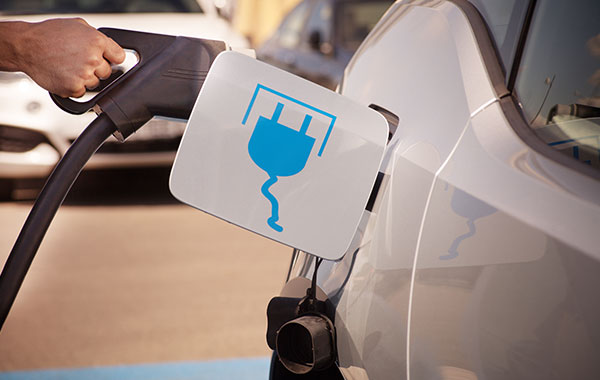Taxes
Car owners in Germany are confronted with a wide range of taxes and duties. The state mainly uses the motor vehicle tax and the taxation of the private use of company cars to promote particularly environmentally friendly vehicles.
Vehicle tax
For all vehicles registered for the first time since 1 July 2009, the motor vehicle tax is calculated on the basis of engine capacity and CO2 emissions. Since 1 January 2014, a tax allowance of 95 g/km has applied to the calculation of motor vehicle tax.
For vehicles registered for the first time on or after 1 September 2018, the CO2 emissions determined according to the WLTP method are used to calculate the motor vehicle tax.
All purely electric vehicles that meet the definition of the Motor Vehicle Tax Act and that were or will be registered for the first time between 18 May 2011 and 31 December 2020 are exempt from motor vehicle tax for a period of ten years. After that, the vehicle will be taxed according to its weight, and the resulting tax burden will be reduced by half.
The cornerstones of the CO2-related motor vehicle tax are:

Private use of company electric vehicles
In the case of taxation of private use of electric vehicles or hybrid electric vehicles with externally rechargeable batteries, the list price shall be reduced by the cost of the battery system contained therein. If the costs for the battery system are not included in the gross list price, this is used without deduction for taxation. For vehicles registered for the first time before 31 December 2013, the list price is reduced by 500 euros per kWh of battery capacity. This amount shall be reduced by 50 euro per kWh of battery capacity per year for vehicles purchased in subsequent years. The reduction in the list price is a maximum of 10,000 euros per vehicle. This maximum amount is reduced by EUR 500 per year for vehicles purchased in subsequent years.
As of January 1, 2019, the tax base for the taxation of private use of electric vehicles, plug-in hybrid vehicles and fuel cell vehicles as company cars purchased or to be purchased after December 31, 2018 will be halved. This will halve the tax on the private use of the company car and on journeys between home and work. Plug-in hybrid vehicles, however, may only emit a maximum of 50g CO2 per kilometre or must have a purely electric range of at least 40 kilometres. The regulation was initially shall be limited to vehicles purchased up to and including 31 December 2021. It applies to both new and used vehicles. The reduction of the gross list price by the cost of the battery system shall not apply in cases where the tax base is halved.
On 7 November 2019, the German Bundestag passed a law providing for an extension of this regulation. Beneficiaries are all electric vehicles purchased up to and including 31 December 2030. In order to benefit from halving the assessment basis even after 31 December 2021, plug-in hybrid vehicles may have a maximum CO2 emission of 50g per kilometre or must have a purely electric minimum range of 60 kilometres from 1 January 2022 to 31 December 2024 and 80 kilometres from 1 January 2025. In addition, purely electric vehicles with a maximum gross list price of EUR 40,000 that are purchased after 31 December 2018 and before 1 January 2031 will benefit from a further halving of the tax base for private use to 25 percent of the gross list price. The law will come into force on 01 January 2020.
Charging at work
Since 1 January 2017, the exemption has applied to benefits granted by the employer in respect of the electric charging of an electric vehicle or hybrid electric vehicle at the employer’s premises or at those of an associated undertaking and in respect of the business charging device temporarily made available for private use. This regulation was initially limited until 31 December 2020. With the Act on Further Tax Incentives for Electric Mobility, this scheme was extended until 31 December 2030. Also extended until 31 December 2030 was the possibility of flat-rate taxation for benefits in money’s worth arising from the free or discounted transfer of ownership of a charging device. The same applies to subsidies for the employee’s expenses for the purchase and use of a loading device.

Special depreciation on delivery vehicles
The law on further tax incentives for electric mobility passed on 7 November 2019 introduced a special depreciation of 50 percent of the acquisition costs for all purely electrically powered commercial vehicles of categories N1, N2 and N3. The special depreciation can only be claimed in the case of the purchase of a new vehicle and only in the year of purchase. The special depreciation can only be claimed if the taxpayer transmits the acquisition costs on which the special depreciation is based as well as the necessary data according to officially prescribed data records to the tax authorities by remote data transmission. Upon request, however, the tax authorities may dispense with electronic transmission in order to avoid unreasonable hardship. The law will enter into force on 01 January 2020.
Trade tax addition
In order to determine the basis of assessment for trade tax, one fifth of the charges for rent (including lease payments) for the use of movable assets owned by another must be added to the profit. For purely electric vehicles and plug-in hybrid vehicles, this addition is reduced by half. For plug-in hybrid vehicles, however, this only applies when emitting a maximum of 50g CO2 per kilometre or – if the rental agreements are concluded from 1 January 2020 to 31 December 2024 – have a purely electric range of at least 60 kilometres and, for rental agreements concluded after 31 December 2024, a purely electric range of 80 kilometres.

